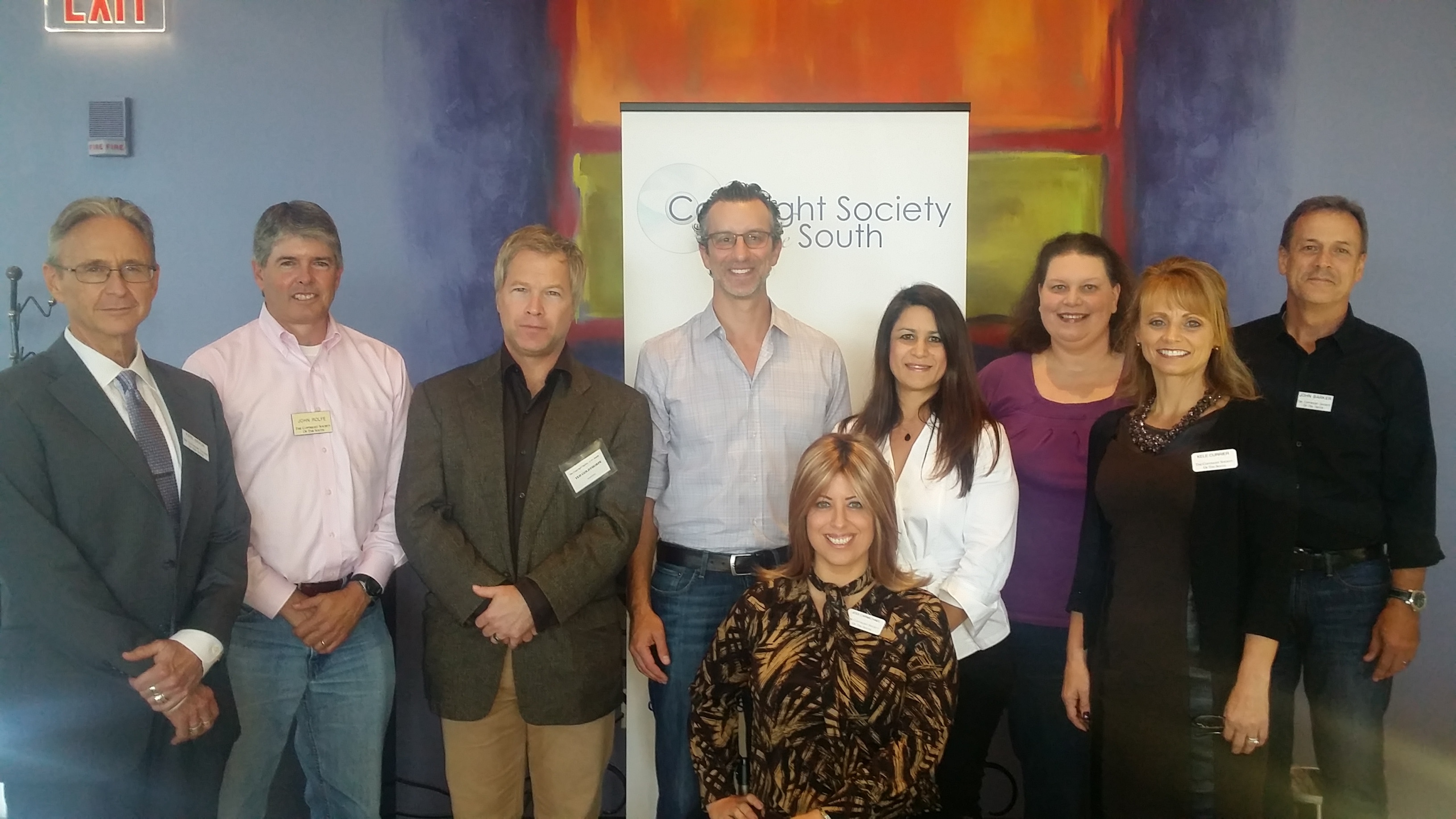Recap: David Israelite, President & CEO of NMPA
On November 4th, 2015 the Copyright Society of the South hosted David Israelite, President & CEO of the National Music Publishers’ Association (NMPA). Israelite remarked on a variety of strategic and legal issues facing the publishing and songwriting community.
Israelite addressed the NMPA’s recent sale of the Harry Fox Agency to SESAC, which he views as an alignment of interests for both the NMPA and SESAC. Israelite introduced the NMPA’s new initiative, the S.O.N.G.S. Foundation (Supporting Our Next Generation of Songwriters), which aims to provide aspiring songwriters with grants to pursue music educations. The foundation’s board is made up of NMPA staffers, publishers, and songwriters including Lee Thomas Miller, Kara DioGuardi, and Jewel.
Israelite discussed the ongoing attempt to reach a settlement with Spotify over pending and unmatched (abbreviated to P&U) mechanical royalties. Due to a combination of the song-by-song mechanical licensing regime in the U.S. and a lack of reliable publishing information, many songs that are streamed on Spotify cannot be matched with publishers to earn royalties, and the money accrues as P&U. (This is the problem that caused the battle between Victory Records/Audiam and Spotify). Third parties like RightsFlow have stepped into alleviate the problem, but even then only 75% of P&U royalties are matched. Israelite, confident that Spotify is acting in good faith, affirmed that the NMPA is undergoing talks with Spotify to reach a settlement so that the large pool of money can be distributed among NMPA member publishers. Israelite indicated that there will be a claims process in which member publishers can manually claim their ownership of the unmatched songs and receive their portion of the P&U money.
Pandora’s recent attempt to pay lower performance rates was a particularly hot issue in Israelite’s presentation. Following the settlements between the Radio Music License Committee (RMLC) and ASCAP and BMI in which it was decided that terrestrial broadcasters would pay 1.7% of revenue to each ASCAP and BMI, Pandora succeeded in purchasing an AM/FM radio station in Rapid City, South Dakota in an attempt to pay lower rates for its musical compositions, a maneuver Israelite sees as evidence of Pandora’s lack of respect for songwriters. Pandora’s stock price [stock_quote symbol=”P”] plummeted by more than 30% on October 22 following a less-than-favorable earnings report (the company posted losses of $85 million). The news that Pandora will pay $90 million to labels for pre-1972 sound recordings and the questions surrounding Pandora’s ability to compete with Apple Music have further bruised investor confidence. For more of Israelite’s analysis on Pandora, see his op-ed in Billboard: “NMPA Head Says ‘Free’ May Work for Pandora But is Devastating to Songwriters.”

Pictured from left: Karl Braun (Hall, Booth, Smith), John Rolfe (Rolfe Entertainment Law), Ted Goldthorpe (Sony/ATV), David Israelite, Jodi Carmichael (CMT), Denise Stevens (Loeb & Loeb), Jill Napier (Music Pub Works), Kele Currier (ASCAP), John Barker (ClearBox Rights)
The issue of fractional licensing has caused an uproar in the publishing and songwriting community, and Israelite echoed the frustration. Just as the Department of Justice appeared to be at the brink of reaching a decision on the reforming of the consent decrees that regulate ASCAP and BMI, it stalled the process by posing more questions, this time regarding fractional licensing. The PRO’s have historically only licensed the fractions of works they control, but evidence cited by the DOJ seems to suggest that licensees ought to be able to license 100% of a work by obtaining a license from just one of the PRO’s that represents the work, even if only a fraction. The DOJ is soliciting public comments on the issue of fractional licensing until November 20, 2015. The questions and instructions for submission can be found at http://www.justice.gov/atr/antitrust-consent-decree-review-ascap-and-bmi-2015.
Israelite relayed the latest news from Washington D.C. on copyright legislation, specifically the NMPA’s bill, the Songwriter Equity Act (H.R.1283 and S.662), which has garnered healthy support in the House of Representatives. He also broke down the upcoming Copyright Royalty Board (CRB) ratesetting process for Section 115 mechanical rates, which will take effect in 2018. The upcoming ratesetting procedure is especially important, as the CRB raised a novel question of law in the Section 114 ratesetting process for sound recording digital performance rates – whether the CRB could set different statutory rates for different licensors. The NMPA has since submitted comments to the CRB, asking for the Section 114 ratesetting decisions not to be precedent-setting for the Section 115 process.
Overall, Israelite emphasized the NMPA’s focus on short-term victories while maintaining its commitment to long-term solutions.
David Israelite can be followed on Twitter at @DavidIsraelite.
The NMPA can be followed on Twitter at @NMPAorg.
Category: Core Content, Event Pics, News, Uncategorized

